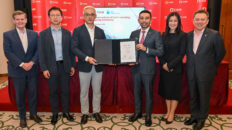Approved by the Ministry of Transport (MOT) and gazetted on 13 June 2025, the tariff revision involves a 30% increase in container handling charges and a drastic 197% to 243% surge in container storage charges, phased in over three stages. While the MOT’s decision to stagger implementation came after discussions with FMM and the Malaysian National Shippers’ Council (MNSC), the Federation remains deeply concerned about the timing and scale of the hike.
Converging Cost Shocks Threaten Export Competitiveness
Industries are currently navigating a minefield of cost escalations—from global trade disruptions and pending US tariff threats on Malaysian exports to the expansion of the Sales and Service Tax (SST) and an anticipated electricity tariff restructuring. The cumulative burden of these shifts, combined with the new port charges, is expected to deal a significant blow to Malaysia’s industrial base and export competitiveness.
Under the new rates, the container handling fee for a 20-foot container will increase from RM300 to RM390 across three phases. Given Port Klang’s annual throughput of 12.5 million twenty-foot equivalent units (TEUs), the full increase could add up to RM1.125 billion in annual operating costs to the industry.
Malaysia Risks Losing its Competitive Edge
The port tariff hike risks eroding Malaysia’s traditional advantage of relatively lower logistics costs. With container handling charges now approaching USD120–130 per TEU, Malaysia’s rates will mirror those of Singapore and Hong Kong, but outpace ASEAN peers such as Vietnam, Indonesia, and Thailand. This could prompt cargo diversion to regional competitors, undermining Malaysia’s position as a trade and logistics hub.
Compounding the concern, Malaysia’s decline to 34th in the IMD World Competitiveness Ranking and current position at 26th in the World Bank’s Logistics Performance Index signal a worrying trend. The port tariff increase, if left unchecked, could further dampen investor confidence and disrupt trade operations at a critical point in Malaysia’s recovery.
Call for Policy Coordination and Cost Impact Strategy
FMM stresses the need for a holistic, coordinated policy response. “No single ministry or agency should act in isolation when the cumulative impact on industry is so severe,” the Federation noted. It has called for an immediate pause on the port tariff hike, electricity base tariff revision, and the expanded SST scope, urging the government to reconvene with industry stakeholders to evaluate the broader economic consequences and ensure alignment through a national cost impact strategy. If these measures are implemented as scheduled, 1 July 2025 will mark a breaking point. A perfect storm of rising port, tax, energy, and trade-related costs could compromise Malaysia’s industrial sustainability, lead to higher consumer prices, and stall investment and job growth.
FMM Offers Partnership for Sustainable Solutions
FMM reaffirmed its commitment to working with the government to realign policy timelines, ensure transparency in cost justifications, and co-develop a strategic roadmap to preserve Malaysia’s industrial competitiveness and protect consumer welfare.









